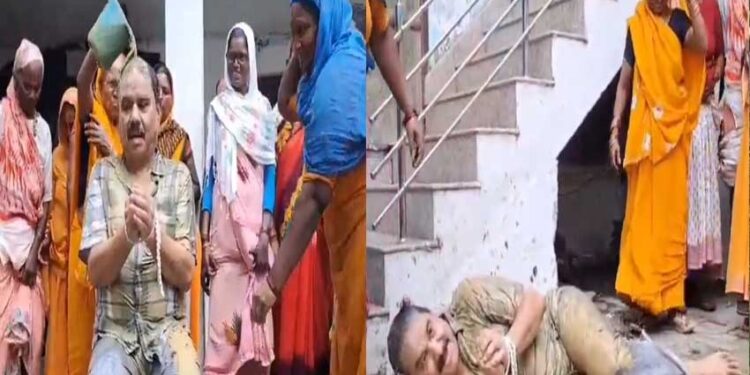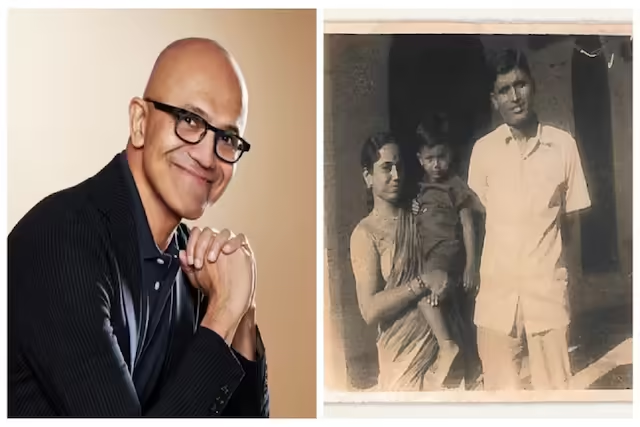History News Desk !!! Ramabai Ambedkar (English: Ramabai Ambedkar, born 7 February, 1898, Maharashtra; Death- 27 May, 1935) was the wife of Dr. Bhimrao Ambedkar, the creator of the Indian Constitution. He is also known as Mata Ramabai, Mata Ramai and ‘Ramatai’. When Bhimrao Ambedkar was fourteen years old, Ramabai was married to him. Ramabai was a dutiful, self-respecting, serious and intellectual woman, who faced financial difficulties in a planned manner and drove the household efficiently. She supported her husband Bhimrao Ambedkar at every step and extended her courage.
Introduction
Ramabai Ambedkar was born on 7 February, 1898 in a village called Vanad near Dapoli, Maharashtra. His father’s name was Bhiku Walangkar. Ramabai’s childhood name was ‘Rami’. Rami’s parents died in childhood. He had two sisters and a brother. The brother’s name was Shankar. Rami and his siblings started living in Mumbai (former Bombay) with their maternal uncle and uncle due to the death of parents in childhood. Rami was married to Bhimrao Ambedkar, the son of Subedar Ramji Sakpal, at the age of 9 in 1906. Bhimrao was 14 years old at that time. Then he was studying in the fifth grade. After marriage, Rami’s name became Ramabai.
Economic difficulties
Even though Bhimrao Ambedkar used to get enough salary, he used to spend with difficult hesitation. In the speed of the Improvement Trust in Wahr Parel, Mumbai, a laborer lived in two rooms in the Mohalla, which were in front of each other. He used to give a certain part of the salary to his wife Ramabai for home expenses. Ramabai, who was a dutiful, self -respecting, serious and intellectual woman, took care of the house in a very planned manner. Ramabai faced every difficulty. He spent a lot of courage even with great courage. Mata Ramabai endured difficulties and crisis, but never lost courage in life struggle. Apart from her family, Ramabai used to take care of her brother’s family. She was a statue of satisfaction, cooperation and tolerance. Bhimrao Ambedkar often lived out of the house. He would hand over what he used to earn to Ramabai and ask for as much when needed. Ramabai used to make a lot of economy in running the house expenses and also used to deposit some money. Because he knew that Bhimrao Ambedkar would need money for higher education.
Virtuous and religious instinct
Ramabai was a virtuous and homemaker of religious instincts. He had a great desire to go to Pandharpur. There is a famous temple of Vitthal-Rukmani in Pandharpur, Maharashtra, but then the entry of untouchables in Hindu temples was forbidden. Bhimrao Ambedkar used to explain to Ramabai that he could not be saved by going to such temples, where he was forbidden to go inside. Sometimes Ramabai used to sit stubbornly on completing religious customs.
Three sons and a daughter died
Ramabai was pregnant when Bhimrao Ambedkar went to America for his higher education. He gave birth to a son Ramesh. But he died in his childhood. After Bhimrao’s return, another son Gangadhar was born, but he also died in childhood. His only son was Yashwant, but his health was also poor. Ramabai was worried enough due to Yashwant’s illness, but still she used to give full view that Dr. Ambedkar’s works did not get any obstacles and their studies should not be spoiled. Ramabai had also learned to read something to write something with the efforts of her husband.[1]
Generally, it has been a pleasant thing in the lives of great men that they have been getting very simple and good life partners. Bhimrao Ambedkar was also one of such lucky great men who got a very good and obedient life partner like Ramabai. Meanwhile, Bhimrao Ambedkar’s youngest son was born. He was named Rajratna. He loved his son very much. Before Rajratna, Ramabai gave birth to a girl, she also passed away in childhood. Ramabai’s health started deteriorating. Therefore, he was sent to Dharwad for air change including both boys- Yashwant and Rajratna. A letter written by Bhimrao Ambedkar to his friend Dattoba Pawar on August 16, 1926 shows that Rajratna also passed away soon. The letter written to Dattoba Pawar is very painful. In it, a father’s sorrow of disconnection of his child is clearly visible. In that letter, Dr. Bhimrao Ambedkar wrote that-
Dr. Bhimrao’s affection and hospitality
When Dr. Bhimrao Ambedkar was in America, Ramabai spent a very difficult day. The husband should be abroad and the expenses should also be limited, it was a simple thing to present difficulties in such a situation. Ramabai laughed with great bravery even without any complaint. Bhimrao Ambedkar used to call Ramabai as ‘Ramo’ with love. In December 1940, the book “Thots of Pakistan” by Bhimrao Ambedkar presented it to his wife ‘Ramo’. The words of the offering were as follows-
I offer this book Ramo as a praise for the sattvikta, mental goodwill, purity of virtue and sorrow with me, in the days of lack and trouble, when we had no assistant, praise for showing immense tolerance and consent. It is clear from the above words how Ramabai supported Bhimrao Ambedkar during the days of crisis and Dr. Ambedkar’s heart had how much respect and love for him.
Death
Bhimrao Ambedkar’s family life was becoming progressively sad. His wife Ramabai was often ill. He also took his wife to Dharwad for air transformation, but there was no difference. Bhimrao Ambedkar’s three sons and a daughter had renounced the body. He was very sad. On May 27, 1935, the mountain of mourning and sorrow broke on him. The brutal death on that day also snatched his wife Ramabai from him. More than ten thousand people went with Ramabai’s bier. Dr. Ambedkar’s mental state of that time was indescribable. He had a great love with his wife. Ramabai was with Ramabai in making him a world famous great man. Ramabai also carried out the house with great satisfaction and patience in the eternal poverty and increased his courage during every difficulty. He was so shocked to Ramabai’s death that he shaved his hair. He wearing saffron clothes and started adopting the behavior of sadhus for renunciation. He was very sad, sad and upset. The life partner who continued to struggle with crises with them in the time of poverty and sorrows and now when the time came to get some happiness, he was separated forever.






